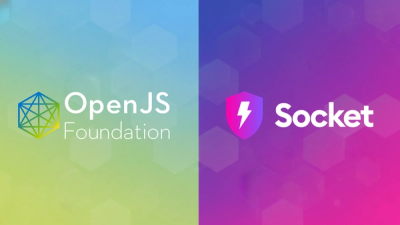
Research
SANDWORM_MODE: Shai-Hulud-Style npm Worm Hijacks CI Workflows and Poisons AI Toolchains
An emerging npm supply chain attack that infects repos, steals CI secrets, and targets developer AI toolchains for further compromise.
expose-loader
Advanced tools
The expose-loader loader allows to expose a module (in whole or in part) to global object (self, window and global).
For further hints on compatibility issues, check out Shimming of the official docs.
To begin, you'll need to install expose-loader:
npm install expose-loader --save-dev
or
yarn add -D expose-loader
or
pnpm add -D expose-loader
(If you're using WebPack 4, install expose-loader@1 and follow the corresponding instructions instead.)
Then you can use the expose-loader using two approaches.
The | or %20 (space) allow to separate the globalName, moduleLocalName and override of expose.
The documentation and syntax examples can be read here.
[!WARNING]
%20is space in a query string, because you can't use spaces in URLs
import $ from "expose-loader?exposes=$,jQuery!jquery";
//
// Adds the `jquery` to the global object under the names `$` and `jQuery`
import { concat } from "expose-loader?exposes=_.concat!lodash/concat";
//
// Adds the `lodash/concat` to the global object under the name `_.concat`
import {
map,
reduce,
} from "expose-loader?exposes=_.map|map,_.reduce|reduce!underscore";
//
// Adds the `map` and `reduce` method from `underscore` to the global object under the name `_.map` and `_.reduce`
src/index.js
import $ from "jquery";
webpack.config.js
module.exports = {
module: {
rules: [
{
test: require.resolve("jquery"),
loader: "expose-loader",
options: {
exposes: ["$", "jQuery"],
},
},
{
test: require.resolve("underscore"),
loader: "expose-loader",
options: {
exposes: [
"_.map|map",
{
globalName: "_.reduce",
moduleLocalName: "reduce",
},
{
globalName: ["_", "filter"],
moduleLocalName: "filter",
},
],
},
},
],
},
};
The require.resolve call is a Node.js function (unrelated to require.resolve in webpack processing).
require.resolve gives you the absolute path to the module ("/.../app/node_modules/jquery/dist/jquery.js").
So the expose only applies to the jquery module. And it's only exposed when used in the bundle.
And run webpack via your preferred method.
| Name | Type | Default | Description |
|---|---|---|---|
exposes | {String|Object|Array<String|Object>} | undefined | List of exposes |
globalObject | String | undefined | Object used for global context |
exposesType:
type exposes =
| string
| {
globalName: string | Array<string>;
moduleLocalName?: string;
override?: boolean;
}
| Array<
| string
| {
globalName: string | Array<string>;
moduleLocalName?: string;
override?: boolean;
}
>;
Default: undefined
List of exposes.
stringAllows to use a string to describe an expose.
syntaxThe | or %20 (space) allow to separate the globalName, moduleLocalName and override of expose.
String syntax - [[globalName] [moduleLocalName] [override]] or [[globalName]|[moduleLocalName]|[override]], where:
globalName - the name in the global object, for example window.$ for a browser environment (required)moduleLocalName - the name of method/variable/etc of the module (the module must export it) (may be omitted)override - allows to override existing value in the global object (may be omitted)If moduleLocalName is not specified, it exposes the entire module to the global object, otherwise it exposes only the value of moduleLocalName.
src/index.js
import $ from "jquery";
import _ from "underscore";
webpack.config.js
module.exports = {
module: {
rules: [
{
test: require.resolve("jquery"),
loader: "expose-loader",
options: {
// For `underscore` library, it can be `_.map map` or `_.map|map`
exposes: "$",
// To access please use `window.$` or `globalThis.$`
},
},
{
// test: require.resolve("jquery"),
test: /node_modules[/\\]underscore[/\\]modules[/\\]index-all\.js$/,
loader: "expose-loader",
type: "javascript/auto",
options: {
// For `underscore` library, it can be `_.map map` or `_.map|map`
exposes: "_",
// To access please use `window._` or `globalThis._`
},
},
],
},
};
objectAllows to use an object to describe an expose.
globalNameType:
type globalName = string | Array<string>;
Default: undefined
The name in the global object. (required).
src/index.js
import _ from "underscore";
webpack.config.js
module.exports = {
module: {
rules: [
{
test: /node_modules[/\\]underscore[/\\]modules[/\\]index-all\.js$/,
loader: "expose-loader",
type: "javascript/auto",
options: {
exposes: {
// Can be `['_', 'filter']`
globalName: "_.filter",
moduleLocalName: "filter",
},
},
},
],
},
};
moduleLocalNameType:
type moduleLocalName = string;
Default: undefined
The name of method/variable/etc of the module (the module must export it).
If moduleLocalName is specified, it exposes only the value of moduleLocalName.
src/index.js
import _ from "underscore";
webpack.config.js
module.exports = {
module: {
rules: [
{
test: /node_modules[/\\]underscore[/\\]modules[/\\]index-all\.js$/,
loader: "expose-loader",
type: "javascript/auto",
options: {
exposes: {
globalName: "_.filter",
moduleLocalName: "filter",
},
},
},
],
},
};
overrideType:
type override = boolean;
Default: false
By default, loader does not override the existing value in the global object, because it is unsafe.
In development mode, we throw an error if the value already present in the global object.
But you can configure loader to override the existing value in the global object using this option.
To force override the value that is already present in the global object you can set the override option to the true value.
src/index.js
import $ from "jquery";
webpack.config.js
module.exports = {
module: {
rules: [
{
test: require.resolve("jquery"),
loader: "expose-loader",
options: {
exposes: {
globalName: "$",
override: true,
},
},
},
],
},
};
arraysrc/index.js
import _ from "underscore";
webpack.config.js
module.exports = {
module: {
rules: [
{
test: /node_modules[/\\]underscore[/\\]modules[/\\]index-all\.js$/,
loader: "expose-loader",
type: "javascript/auto",
options: {
exposes: [
"_.map map",
{
globalName: "_.filter",
moduleLocalName: "filter",
},
{
globalName: ["_", "find"],
moduleLocalName: "myNameForFind",
},
],
},
},
],
},
};
It will expose only map, filter and find (under myNameForFind name) methods to the global object.
In a browser these methods will be available under windows._.map(..args), windows._.filter(...args) and windows._.myNameForFind(...args) methods.
globalObjecttype globalObject = string;
Default: undefined
Object used for global context
import _ from "underscore";
webpack.config.js
module.exports = {
module: {
rules: [
{
test: /node_modules[/\\]underscore[/\\]modules[/\\]index-all\.js$/,
loader: "expose-loader",
type: "javascript/auto",
options: {
exposes: [
{
globalName: "_",
},
],
globalObject: "this",
},
},
],
},
};
index.js
import { method1 } from "./my-module.js";
my-module.js
function method1() {
console.log("method1");
}
function method2() {
console.log("method1");
}
export { method1, method2 };
webpack.config.js
module.exports = {
module: {
rules: [
{
test: /my-module\.js$/,
loader: "expose-loader",
options: {
exposes: "mod",
// // To access please use `window.mod` or `globalThis.mod`
},
},
],
},
};
Please take a moment to read our contributing guidelines if you haven't yet done so.
The script-loader package allows you to add a script tag to the HTML that includes the module, making it globally available. Unlike expose-loader, which directly exposes the module to the global object, script-loader injects the script into the HTML, which can be useful for loading external scripts.
The imports-loader package allows you to inject variables into the scope of a module. While expose-loader makes a module globally available, imports-loader is useful for injecting dependencies into a module's scope, which can be useful for polyfills or shimming.
FAQs
expose loader module for webpack
The npm package expose-loader receives a total of 280,941 weekly downloads. As such, expose-loader popularity was classified as popular.
We found that expose-loader demonstrated a not healthy version release cadence and project activity because the last version was released a year ago. It has 3 open source maintainers collaborating on the project.
Did you know?

Socket for GitHub automatically highlights issues in each pull request and monitors the health of all your open source dependencies. Discover the contents of your packages and block harmful activity before you install or update your dependencies.

Research
An emerging npm supply chain attack that infects repos, steals CI secrets, and targets developer AI toolchains for further compromise.

Company News
Socket is proud to join the OpenJS Foundation as a Silver Member, deepening our commitment to the long-term health and security of the JavaScript ecosystem.

Security News
npm now links to Socket's security analysis on every package page. Here's what you'll find when you click through.